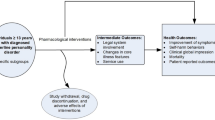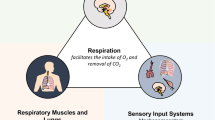Abstract
To systematically synthesize published literature on somatoform complaints as psychological factors in vertigo/dizziness to determine the characteristics of comorbidities, relationships and causality. Following PRISMA guidelines, systematic searches of PubMed, WOS, and Cochrane Library databases and manual follow-up reference searches were performed for articles published in English up to 2021. All original research studies and retrospective or prospective studies focusing on the relationship between vertigo/dizziness and somatoform complaints/somatization were systematically retrieved. Studies that did not include data on the association between somatoform complaints/somatization and vertigo/dizziness were excluded, as were reviews, comments, case reports, editorials, letters, and practice guidelines. Extracted data included research type, number of participants, assessment tools for vertigo/dizziness and somatoform complaints/somatization, statistical methods, and the main results. The quality of included studies was evaluated. Records identified through database searching n = 1238. After removing duplicates and unrelated articles based on abstract and title search, 155 articles recorded as relevant. Except for the 5 articles, title and abstract of all records screened and 88 of them excluded. Critically evaluating those full texts, 28 studies included. The present study highlights the relationship between the vertigo/dizziness and somatoform complaints/somatization. It is determined that somatoform complaints of the individuals suffering from vertigo/dizziness is highly prevelant and some other factor such as personality characteristics or accompanying psychopathology have affect on the prevelance. The main results of all reviewed studies emphasize the requirement for assessment and intervention of vertigo/dizziness, in collaboration with the department of psychiatry. PROSPERO REGISTRATION: PROSPERO: CRD42020222273.

Similar content being viewed by others
Data Availability
Data available upon request.
References
Prieto L, Santed R, Cobo E, Alonso J (1999) A new measure for assessing the health-related quality of life of patients with vertigo, dizziness or imbalance: the VDI questionnaire. Qual Life Res 8(1–2):131–139. https://doi.org/10.1023/a:1026433113262. (PMID: 10457746)
Strupp M, Brandt T (2008) Diagnosis and treatment of vertigo and dizziness. Dtsch Arztebl Int 105(10):173–180. https://doi.org/10.3238/arztebl.2008.0173. (Epub 2008 Mar 7 PMID: 19629221 PMCID: PMC2696792)
Eckhardt-Henn A, Breuer P, Thomalske C, Hoffmann SO, Hopf HC (2003) Anxiety disorders and other psychiatric subgroups in patients complaining of dizziness. J Anxiety Disord 17(4):369–388. https://doi.org/10.1016/s0887-6185(02)00226-8. (PMID: 12826087)
Odman M, Maire R (2008) Chronic subjective dizziness. Acta Otolaryngol 128(10):1085–1088. https://doi.org/10.1080/00016480701805455. (PMID: 18607990)
Kroenke K, Hoffman RM, Einstadter D (2000) How common are various causes of dizziness? A critical review. South Med J 93(2):160–167 (quiz 168. PMID: 10701780)
Neuhauser HK, Lempert T (2009) Vertigo: epidemiologic aspects. Semin Neurol 29(5):473–481
American Psychiatric Association. (1994). Diagnostic and statistical manual of mental disorders: DSM-IV: Author
World Health Organization. (2004). ICD-10 : international statistical classification of diseases and related health problems : tenth revision, 2nd ed. World Health Organization. https://apps.who.int/iris/handle/10665/42980
Center for Behavioral Health Statistics and Quality. (2016) Impact of the DSM-IV to DSM-5 Changes on the National Survey on Drug Use and Health. Substance Abuse and Mental Health Services Administration, Rockville, MD.
American Psychiatric Association. (2013). Diagnostic and statistical manual of mental disorders: DSM-5: Author.
Schaefert R, Hausteiner-Wiehle C, Häuser W, Ronel J, Herrmann M, Henningsen P (2012) Clinical Practice Guideline: non-specific, functional and somatoform bodily complaints. Dtsch Arztebl Int 109(47):803–813. https://doi.org/10.3238/arztebl.2012.0803
Dieterich M, Eckhardt-Henn A (2004) Neurologische und somatoforme Schwindelsyndrome. Nervenarzt 75(3):281–302. https://doi.org/10.1007/s00115-003-1678-z. (PMID: 15074322)
Moher D, Liberati A, Tetzlaff J, Altman DG (2009) Preferred reporting items for systematic reviews and meta-analyses: the PRISMA statement. Ann Intern Med 151(4):264. https://doi.org/10.7326/0003-4819-151-4-200908180-00135. (Epub 2009 Jul 20 PMID: 19622511)
National Heart, Lung, and Blood Institute. “Study Quality Assessment Tools [https://www.nhlbi.nih.gov/health-topics/study-quality-assessment-tools].” (2019).
Persoons P, Luyckx K, Desloovere C, Vandenberghe J, Fischler B (2003) Anxiety and mood disorders in otorhinolaryngology outpatients presenting with dizziness: validation of the self-administered PRIME-MD Patient Health Questionnaire and epidemiology. Gen Hosp Psychiatry 25(5):316–323. https://doi.org/10.1016/S0163-8343(03)00072-0. (PMID: 12972222)
Ardiç FN, Ateşci FC (2006) Is psychogenic dizziness the exact diagnosis? Eur Arch Otorhinolaryngol 263(6):578–581. https://doi.org/10.1007/s00405-006-0013-2. (Epub 18 PMID: 16547759)
Best C, Eckhardt-Henn A, Diener G, Bense S, Breuer P, Dieterich M (2006) Interaction of somatoform and vestibular disorders. J Neurol Neurosurg Psychiatry 77(5):658–664. https://doi.org/10.1136/jnnp.2005.072934. (PMID:16614028 PMCID: PMC2117464)
Özdilek A, Yalınay Dikmen P, Acar E, Ayanoğlu Aksoy E, Korkut N (2019) Determination of anxiety, health anxiety and somatosensory amplification levels in individuals with benign paroxysmal positional vertigo. J Int Adv Otol 15(3):436–441. https://doi.org/10.5152/iao.2019.6874. (PMID: 31347508 PMCID: PMC6937190)
Limburg K, Sattel H, Radziej K, Lahmann C (2016) DSM-5 somatic symptom disorder in patients with vertigo and dizziness symptoms. J Psychosom Res 91:26–32. https://doi.org/10.1016/j.jpsychores.2016.10.005. (Epub 2016 Oct 18 PMID: 27894459)
Limburg K, Sattel H, Dinkel A, Radziej K, Becker-Bense S, Lahmann C (2017) Course and predictors of DSM-5 somatic symptom disorder in patients with vertigo and dizziness symptoms—a longitudinal study. Compr Psychiatry 77:1–11. https://doi.org/10.1016/j.comppsych.2017.05.003. (Epub 2017 May 12 PMID: 28535434)
Limburg K, Dinkel A, Schmid-Mühlbauer G, Sattel H, Radziej K, Becker-Bense S, Henningsen P, Dieterich M, Lahmann C (2018) Neurologists’ assessment of mental comorbidity in patients with vertigo and dizziness in routine clinical care-comparison with a structured clinical interview. Front Neurol 13(9):957. https://doi.org/10.3389/fneur.2018.00957. (PMID: 30483214 PMCID: PMC6242889)
Habs M, Strobl R, Grill E, Dieterich M, Becker-Bense S (2020) Primary or secondary chronic functional dizziness: does it make a difference? A DizzyReg study in 356 patients. J Neurol 267(S1):212–222. https://doi.org/10.1007/s00415-020-10150-9. (Epub 2020 Aug 27 PMID: 32852579 PMCID: PMC7718176)
Yardley L, Verschuur C, Masson E, Luxon L, Haacke N (1992) Somatic and psychological factors contributing to handicap in people with vertigo. Br J Audiol 26(5):283–290. https://doi.org/10.3109/03005369209076649. (PMID: 1486356)
Piker EG, Jacobson GP, McCaslin DL, Grantham SL (2008) Psychological comorbidities and their relationship to self-reported handicap in samples of dizzy patients. J Am Acad Audiol 19(4):337–347. https://doi.org/10.3766/jaaa.19.4.6. (PMID: 18795472)
Yardley L (1994) Prediction of handicap and emotional distress in patients with recurrent vertigo: symptoms, coping strategies, control beliefs and reciprocal causation. Soc Sci Med 39(4):573–581. https://doi.org/10.1016/0277-9536(94)90100-7. (PMID: 7973857)
Best C, Eckhardt-Henn A, Tschan R, Dieterich M (2009) Psychiatric morbidity and comorbidity in different vestibular vertigo syndromes: results of a prospective longitudinal study over one year. J Neurol 256:58–65. https://doi.org/10.1007/s00415-009-0038-8
Garcia FV, Coelho MH, Figueira ML (2003) Psychological manifestations of vertigo: a pilot prospective observational study in a Portuguese population. Int Tinnitus J 9(1):42–47 (PMID: 14763329)
Godemann F, Siefert K, Hantschke-Brüggemann M, Neu P, Seidl R, Ströhle A (2005) What accounts for vertigo one year after neuritis vestibularis—anxiety or a dysfunctional vestibular organ? J Psychiatr Res 39(5):529–534. https://doi.org/10.1016/j.jpsychires.2004.12.006. (Epub 2005 Mar 4 PMID: 15992562)
Kroenke K, Lucas CA, Rosenberg ML, Scherokman BJ (1993) Psychiatric disorders and functional impairment in patients with persistent dizziness. J Gen Intern Med 8(10):530–535. https://doi.org/10.1007/BF02599633. (PMID: 8271084)
Monzani D, Genovese E, Rovatti V, Malagoli ML, Rigatelli M, Guidetti G (2006) Life events and benign paroxysmal positional vertigo: a case-controlled study. Acta Otolaryngol 126(9):987–992. https://doi.org/10.1080/00016480500546383. (PMID: 16864499)
Probst T, Dinkel A, Schmid-Mühlbauer G, Radziej K, Limburg K, Pieh C, Lahmann C (2017) Psychological distress longitudinally mediates the effect of vertigo symptoms on vertigo-related handicap. J Psychosom Res 93:62–68. https://doi.org/10.1016/j.jpsychores.2016.11.013. (Epub 2016 Nov 30 PMID: 28107895)
Tschan R, Best C, Beutel ME, Knebel A, Wiltink J, Dieterich M (2011) Eckhardt-Henn A Patients’ psychological well-being and resilient coping protect from secondary somatoform vertigo and dizziness (SVD) 1 year after vestibular disease. J Neurol 258(1):104–112. https://doi.org/10.1007/s00415-010-5697-y. (Epub 2010 Aug 18 PMID: 20717689)
Tschan R, Best C, Wiltink J, Beutel ME, Dieterich M, Eckhardt-Henn A (2013) Persistence of symptoms in primary somatoform vertigo and dizziness: a disorder “lost” in health care? J Nerv Ment Dis 201(4):328–333. https://doi.org/10.1097/NMD.0b013e318288e2ad. (PMID: 23538978)
Limburg K, Schmid-Mühlbauer G, Sattel H, Dinkel A, Radziej K, Gonzales M, Ronel J, Lahmann C (2019) Potential effects of multimodal psychosomatic inpatient treatment for patients with functional vertigo and dizziness symptoms—a pilot trial. Psychol Psychother 92(1):57–73. https://doi.org/10.1111/papt.12177. (Epub 2018 Mar 30 PMID: 29603590)
Dietzek M, Finn S, Karvouniari P, Zeller MA, Klingner CM, Guntinas-Lichius O, Witte OW, Axer H (2018) In older patients treated for dizziness and vertigo in multimodal rehabilitation somatic deficits prevail while anxiety plays a minor role compared to young and middle aged patients. Front Aging Neurosci 30(10):345. https://doi.org/10.3389/fnagi.2018.00345. (PMID: 30425637 PMCID: PMC6218593)
Lahmann C, Henningsen P, Brandt T, Strupp M, Jahn K, Dieterich M, Eckhardt- Henn A, Feuerecker R, Dinkel A, Schmid G (2015) Psychiatric comorbidity and psychosocial impairment among patients with vertigo and dizziness. J Neurol Neurosurg Psychiatry 86(3):302–308. https://doi.org/10.1136/jnnp-2014-307601. (Epub 24 PMID: 24963122)
Ferrari S, Monzani D, Baraldi S, Simoni E, Prati G, Forghieri M, Rigatelli M, Genovese E, Pingani L (2014) Vertigo “In the Pink”: the impact of female gender on psychiatric-psychosomatic comorbidity in benign paroxysmal positional vertigo patients. Psychosomatics 55(3):280–288. https://doi.org/10.1016/j.psym.2013.02.005. (Epub 2013 Jun 4 PMID: 23756120)
Rigatelli M, Casolari L, Bergamini G, Guidetti G (1984) Psychosomatic study of 60 patients with vertigo. Psychother Psychosom 41(2):91–99. https://doi.org/10.1159/000287794. (PMID: 6718663)
Godemann F, Schabowska A, Naetebusch B, Heinz A, Ströhle A (2006) The impact of cognitions on the development of panic and somatoform disorders: a prospective study in patients with vestibular neuritis. Psychol Med 36(1):99–108. https://doi.org/10.1017/S0033291705005921. (PMID: 16356295)
Eckhardt-Henn A, Best C, Bense S, Breuer P, Diener G, Tschan R, Dieterich M (2008) Psychiatric comorbidity in different organic vertigo syndromes. J Neurol 255(3):420–428. https://doi.org/10.1007/s00415-008-0697-x. (Epub 2008 Mar 14 PMID: 18338198)
Afzelius LE, Henriksson NG, Wahlgren L (1980) Vertigo and dizziness of functional origin. Laryngoscope 90(4):649–656. https://doi.org/10.1288/00005537-198004000-00011. (PMID: 7359983)
Staab J, Eckhardt-Henn A, Horii A, Jacob R, Strupp M, Brandt T, Bronstein A (2017) Diagnostic criteria for persistent postural-perceptual dizziness (PPPD): consensus document of the committee for the classification of vestibular disorders of the Bárány society. J Vestib Res 27:1–18. https://doi.org/10.3233/VES-170622
McGeary DD, Hartzell MM, McGeary CA, Gatchel RJ (2016) Somatic disorders. In: Norcross JC, VandenBos GR, Freedheim DK, Pole N (eds) APA handbook of clinical psychology: Psychopathology and health. American Psychological Association, USA, pp 209–223. https://doi.org/10.1037/14862-007
Ketola S, Niemensivu R, Henttonen A, Appelberg B, Kentala E (2009) Somatoform disorders in vertiginous children and adolescents. Int J Pediatr Otorhinolaryngol 73(7):933–936. https://doi.org/10.1016/j.ijporl.2009.03.010. (Epub 2009 May 1 PMID: 19410302)
Emiroğlu FN, Kurul S, Akay A, Miral S, Dirik E (2004) Assessment of child neurology outpatients with headache, dizziness, and fainting. J Child Neurol 19(5):332–336. https://doi.org/10.1177/088307380401900505. (PMID: 15224706)
Acknowledgements
The authors are grateful to the Esra Çalış, who contributed to selection for key words and determination of search strategy.
Author information
Authors and Affiliations
Contributions
SA: Design, searching the literature, Analysing the data, and critical reading. SC; Design, searching the literature, registration to PROSPERO, Analysing the data, writing the manuscript.
Corresponding author
Ethics declarations
Conflict of interset
The authors have no relevant financial or non-financial interests to disclose.
Ethical Approval
This is a systematic review which is conducted based on publicly accessible documents as evidence. Therefore, it is not required to seek an institutional ethics approval before conducting this study.
Additional information
Publisher's Note
Springer Nature remains neutral with regard to jurisdictional claims in published maps and institutional affiliations.
Rights and permissions
Springer Nature or its licensor (e.g. a society or other partner) holds exclusive rights to this article under a publishing agreement with the author(s) or other rightsholder(s); author self-archiving of the accepted manuscript version of this article is solely governed by the terms of such publishing agreement and applicable law.
About this article
Cite this article
Aksoy, S., Cekic, S. The Relationship Between Vertigo/Dizziness and Somatoform Complaints: A Systematic Review. Indian J Otolaryngol Head Neck Surg 76, 1434–1446 (2024). https://doi.org/10.1007/s12070-023-04233-y
Received:
Accepted:
Published:
Issue Date:
DOI: https://doi.org/10.1007/s12070-023-04233-y




